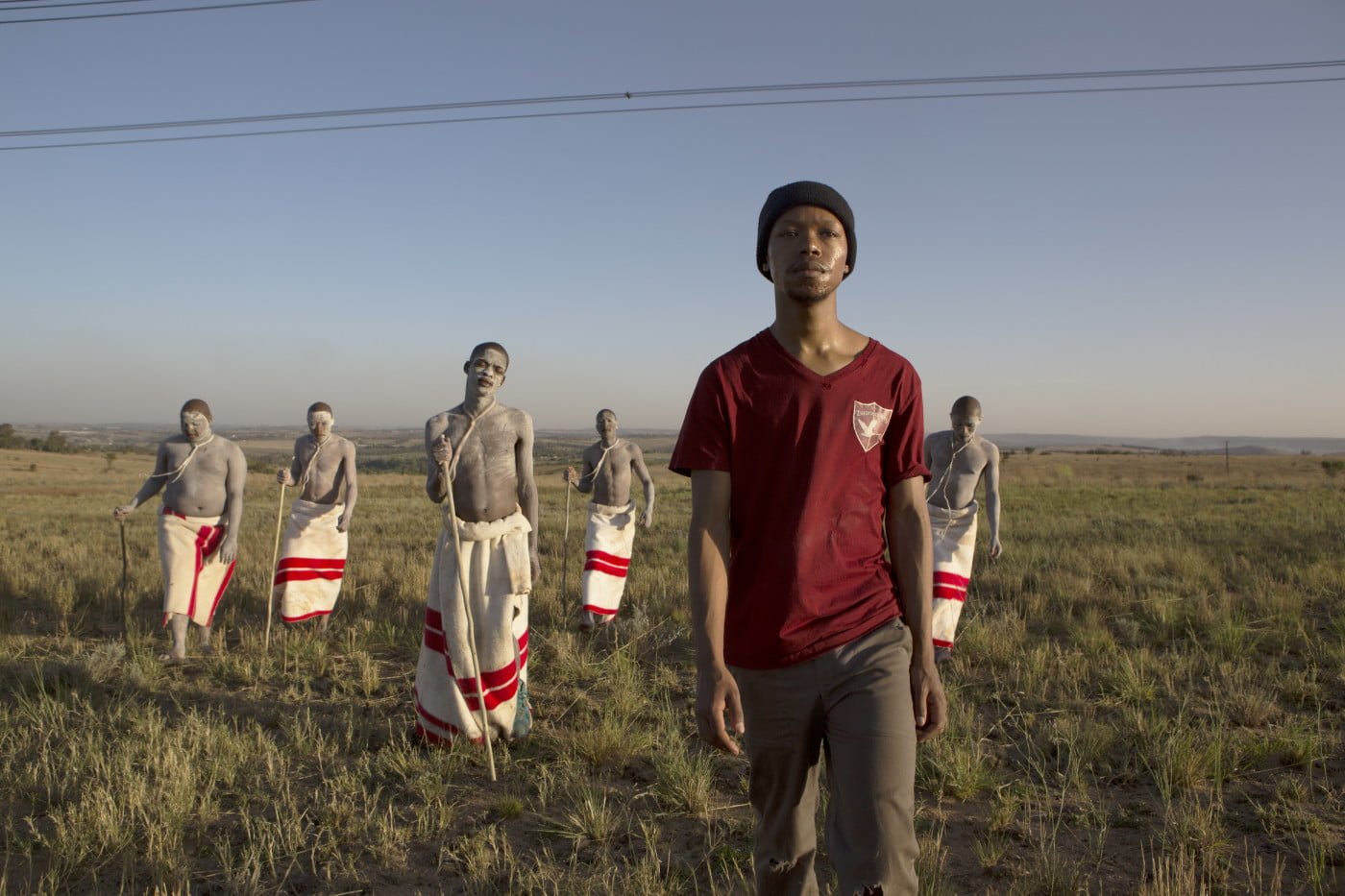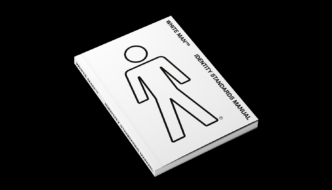
Courtesy of HOME cinema
The process of breaking through a glass ceiling causes fragmentation. It is common for pioneering works of cinema – which with the blessing of hindsight are considered progressive – to initially polarise opinion. Think of the British Board of Film’s complete condemnation of Germaine Dulac’s 1928 surrealist masterpiece The Seashell and the Clergyman, a feminist film which would go on to inspire the Suffragette’s bra burning movement. Or more recently, the time that Italy’s state TV network broadcast a ludicrously censored edit of Ang Lee’s gay cowboy romance Brokeback Mountain (2005) transforming the film into a heterosexual tale of friendship.
Since John Tregove’s courageously transgressive The Wound premiered at Sundance Film Festival on the 22 February 2017 it has caused similarly stark fragmentation. At one point the film entered a paradoxical stage where it was South Africa’s official submission to the Oscars foreign-language category, yet banned from being screened within South Africa due to hostile protestation around cultural appropriation and pornographic content. The progressive narrative examines themes of sexual repression within the Xhosa tribe’s coming of age ritual – Ukwaluka – a lengthy, and intense circumcision ceremony which marks boys’ transition into manhood. The process of Ukwaluka is normally clouded in secrecy. This seldom seen world has only broken its way into popular discourse once before – a rather romantic depiction in Nelson Mandela’s Long Walk to Freedom.
Based on Thando Mgqolozana’s daring novel ‘A Man who is not A Man’, Tregove highlights the difficulties boys face when confronted by the Xhosa’s regimented and traditional notions of what it is to be a man. The film documents the plights of Kwanda’s (Niza Jay Ncoyini) journey through this ostensibly formative rite-of-passage. It is clear from the outset that Kwanda – a liberal, openly gay, part-Westernised city boy from Johannesburg sent to the mountains of the Eastern Cape by his conservative father to iron out his sybaritic ways – is not going to conform to the Xhosa persona of manhood being imposed upon him. Kwanda turns his pierced nose up at the ceremonial proceedings, constantly questioning the purpose of the tradition – and in doing so exposing any insecurities that lie within existential questions of gender conditioning and sexuality.
One of the triumphs of the film is the casting of singer Nakhane Touré as Xolani; a repressed gay man tasked with the role of mentoring the anarchic Kwanda through the Ukwaluka ritual. Xolani, a lonely bottled-up factory worker from Queenstown, returns annually to the site of his own initiation to renew sexual relations with fellow mentor, and childhood friend Vija (Bongile Mantsai). Kwanda, through the process of coming to terms with his own sexuality, is quick to notice the points of conflict within Xolani’s own character, and a complex and tumultuous relationship ensues.
Xolani’s repression is contrasted by Rwanda’s reluctance to deny his true self, and to succumb to the same social ostracism that has driven Xolani deep into the closet. “Don’t you get tired pretending to be something you’re not?” – Tregove plays with the dichotomy between Kwanda’s resolute defiance towards fundamentalist taboos, and Xolani’s suppressed and defining conflict with his own insecurities. Xolani’s growing fear that his concealed relationship with Vija will be exposed results in a toxic environment. The mounting tension leads to an unexpected and highly dramatic ending – one which completely caught me off guard. It took me a while to fathom how unflinchingly bold this narrative fraught with sexual politics truly is – especially when contextualised into South Africa’s divided climate.
The intimate wide-screen cinematography, containing lots of handheld footage, intensifies the emotional struggle. However, The Wound’s very existence – and reach – deserve celebration as much as its striking aesthetic. The production team and National Film and Video South Africa deserve lots of accreditation for pushing this challenging narrative against the regimented context of traditional tribal views. The film is another feather in the bow of a stand-up year for LGBTQ+ cinema. With the huge successes of Call Me by Your Name and God’s Own Country, the genre is – after a journey burdened with oppression – cementing its place in the mainstream.
Filed under: Film, TV & Tech
Tagged with: conditioning, Man, sexuality, The Body, the self, The Wound



Comments